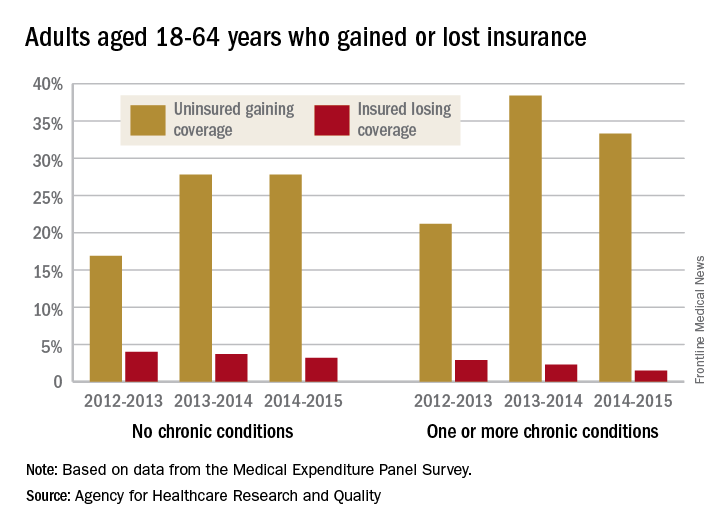Fewer nonelderly adults lost their health insurance in 2015 than in 2013, while more gained coverage, according to the Agency for Healthcare Research and Quality.
The presence of chronic conditions played a part for those who lost coverage. From 2012 to 2013, 2.9% of adults aged 18-64 years with one or more chronic conditions lost their insurance, compared with 1.5% who lost coverage from 2014 to 2015. Those with no chronic conditions saw a corresponding drop from 4% to 3.2%, but that change was not significant, AHRQ investigators reported.
The gains in coverage made by uninsured adults were considerably larger. In 2015, 33.3% of uninsured adults with one or more chronic conditions gained coverage, compared with 21.2% who gained coverage in 2013. The numbers were somewhat lower for those with no chronic conditions: 27.8% gained insurance in 2015, compared with 16.8% in 2013. There was, however, a drop from 2014 to 2015 for those with chronic conditions that was not seen among those with no chronic conditions, the investigators noted.For this analysis, the chronic conditions were active asthma, arthritis, diabetes, emphysema, heart disease, high blood pressure, high cholesterol, bronchitis, and stroke. The source of the data was the Medical Expenditure Panel Survey.


